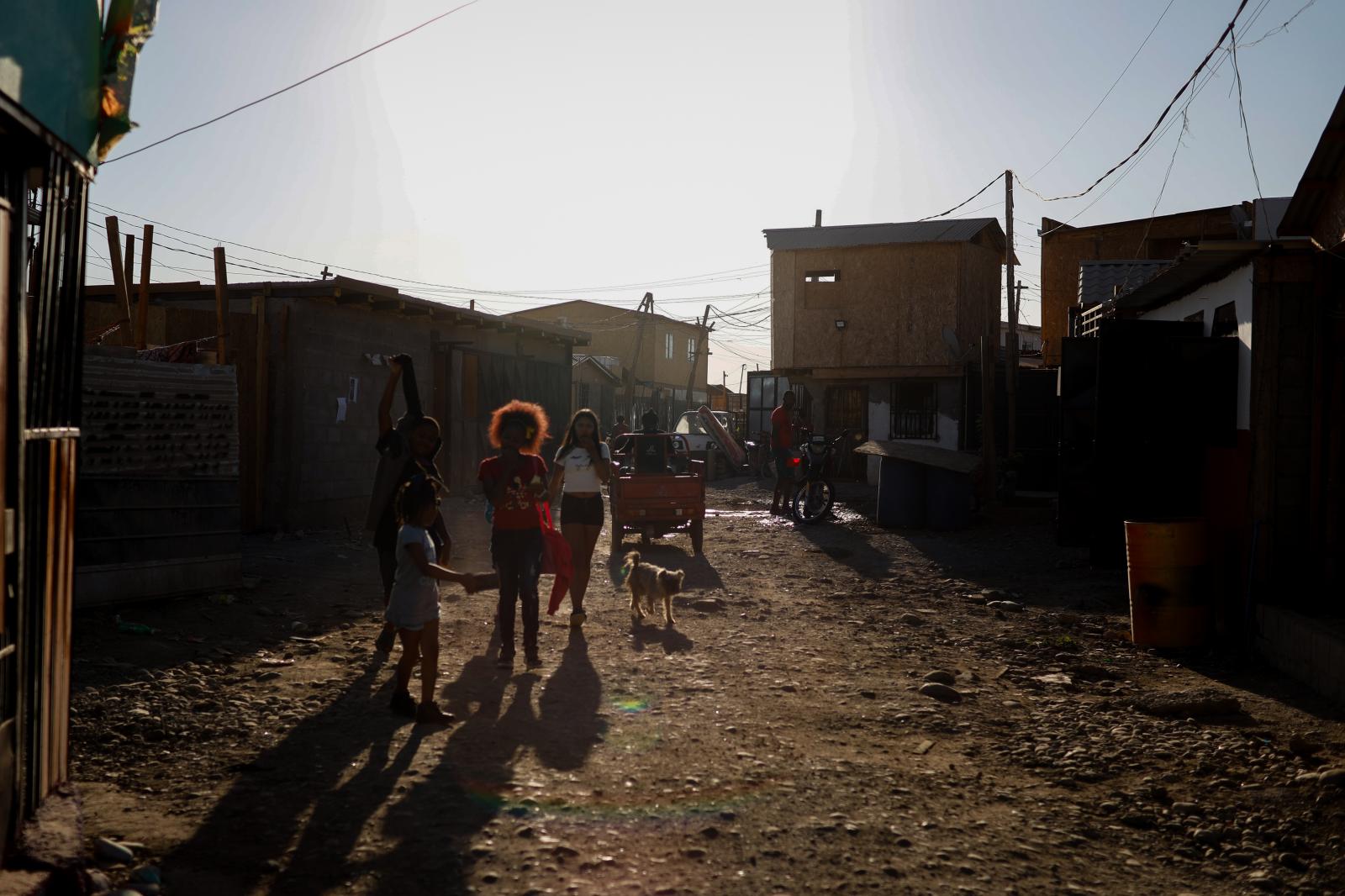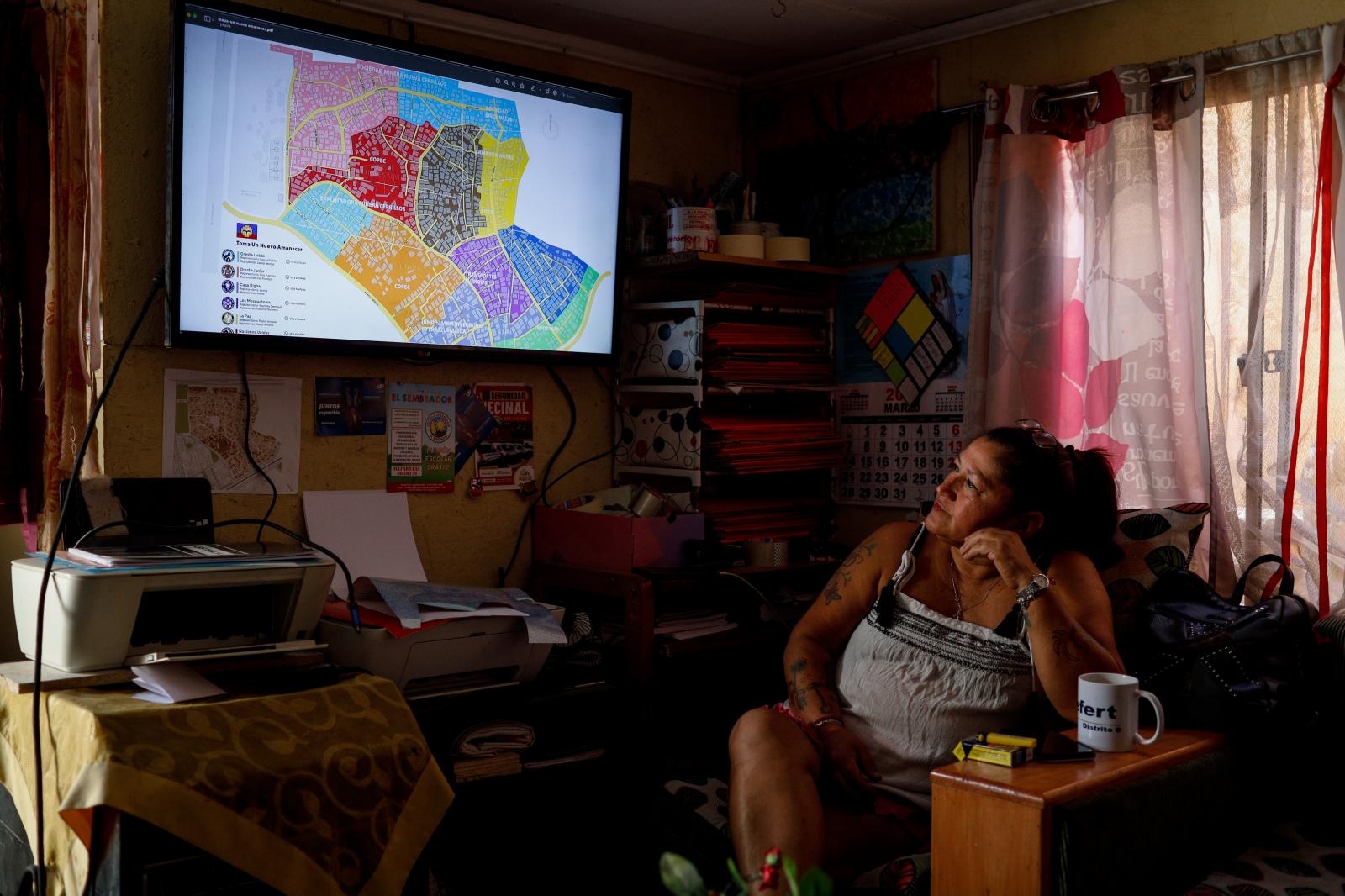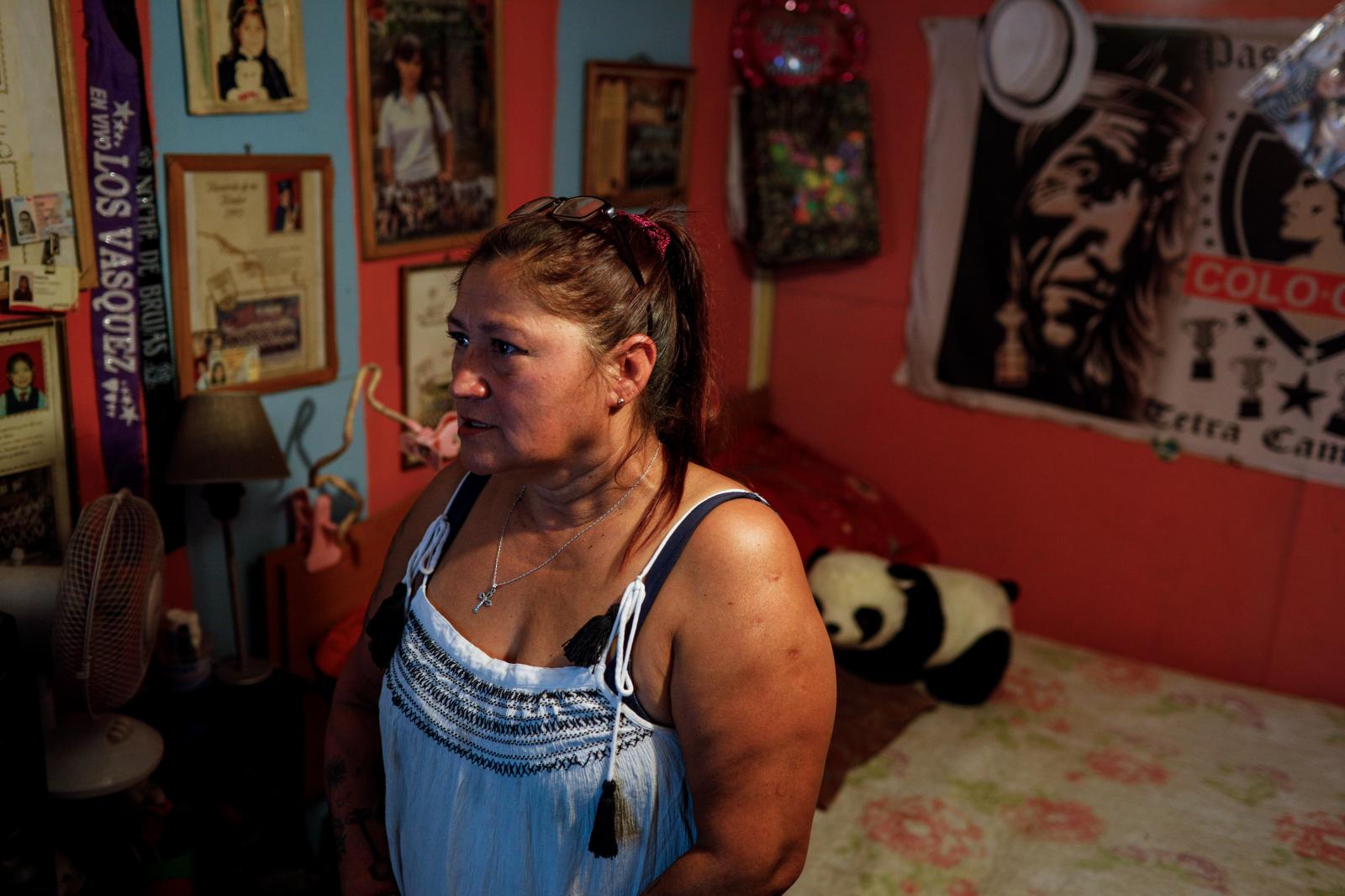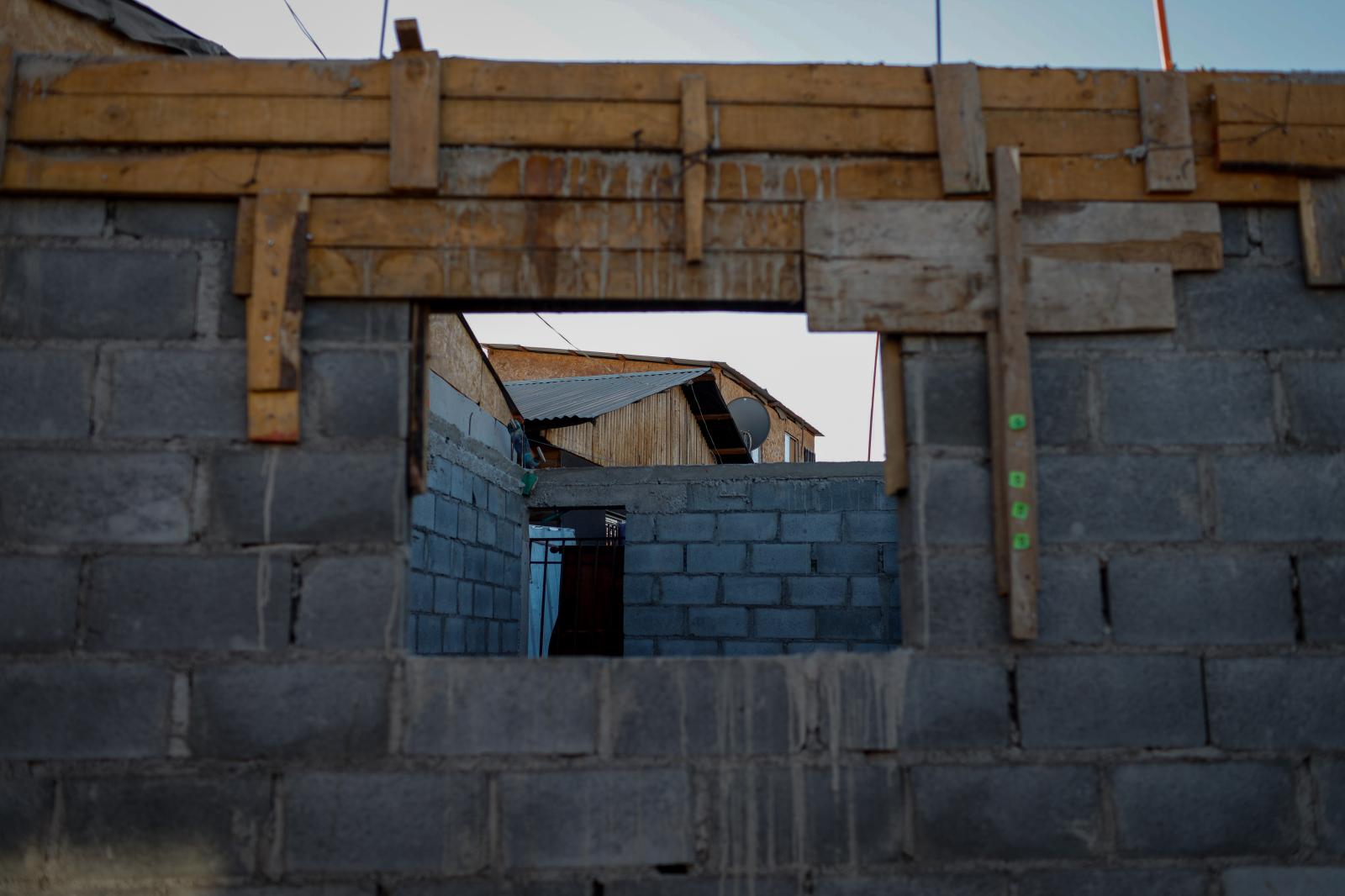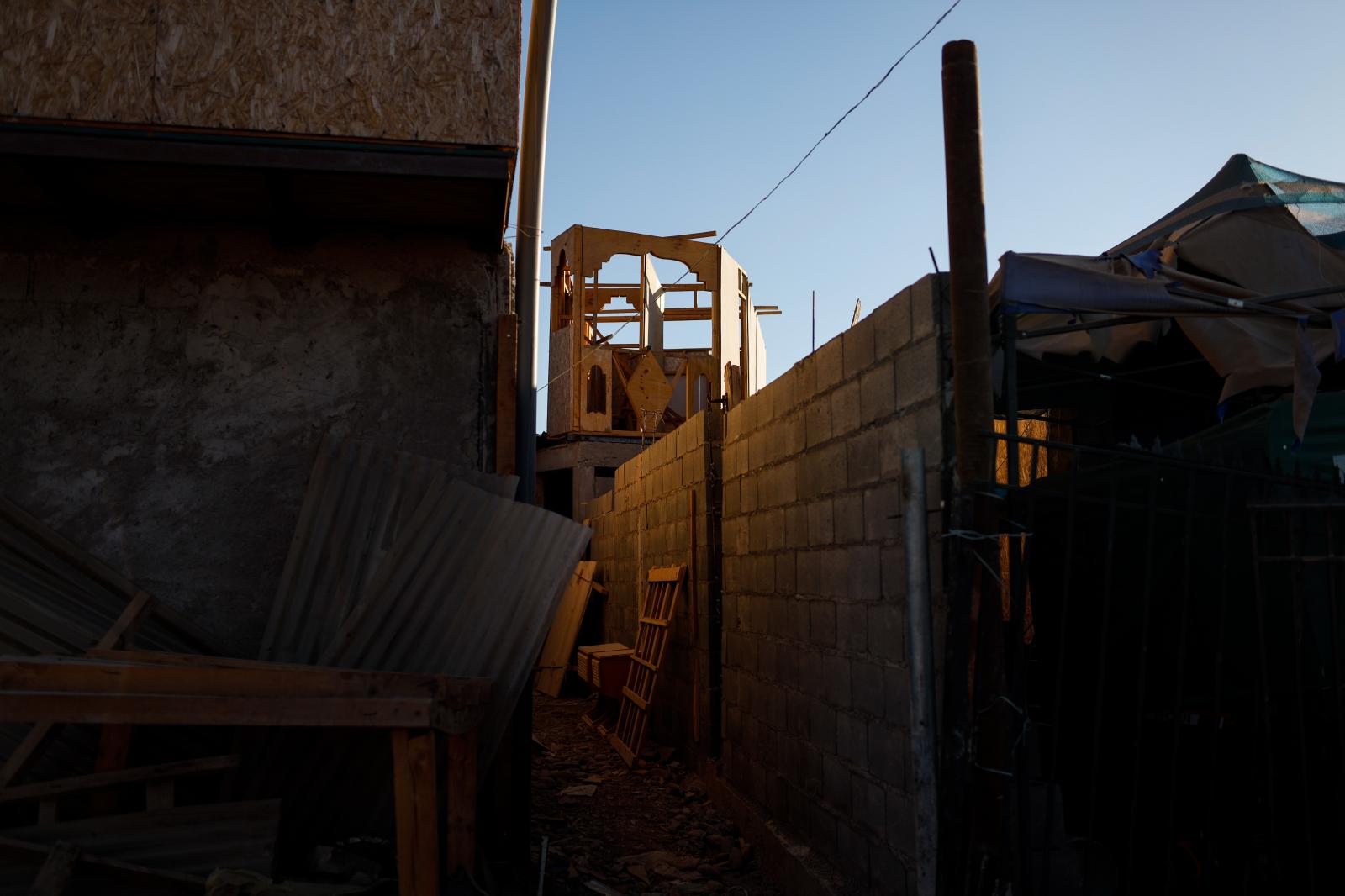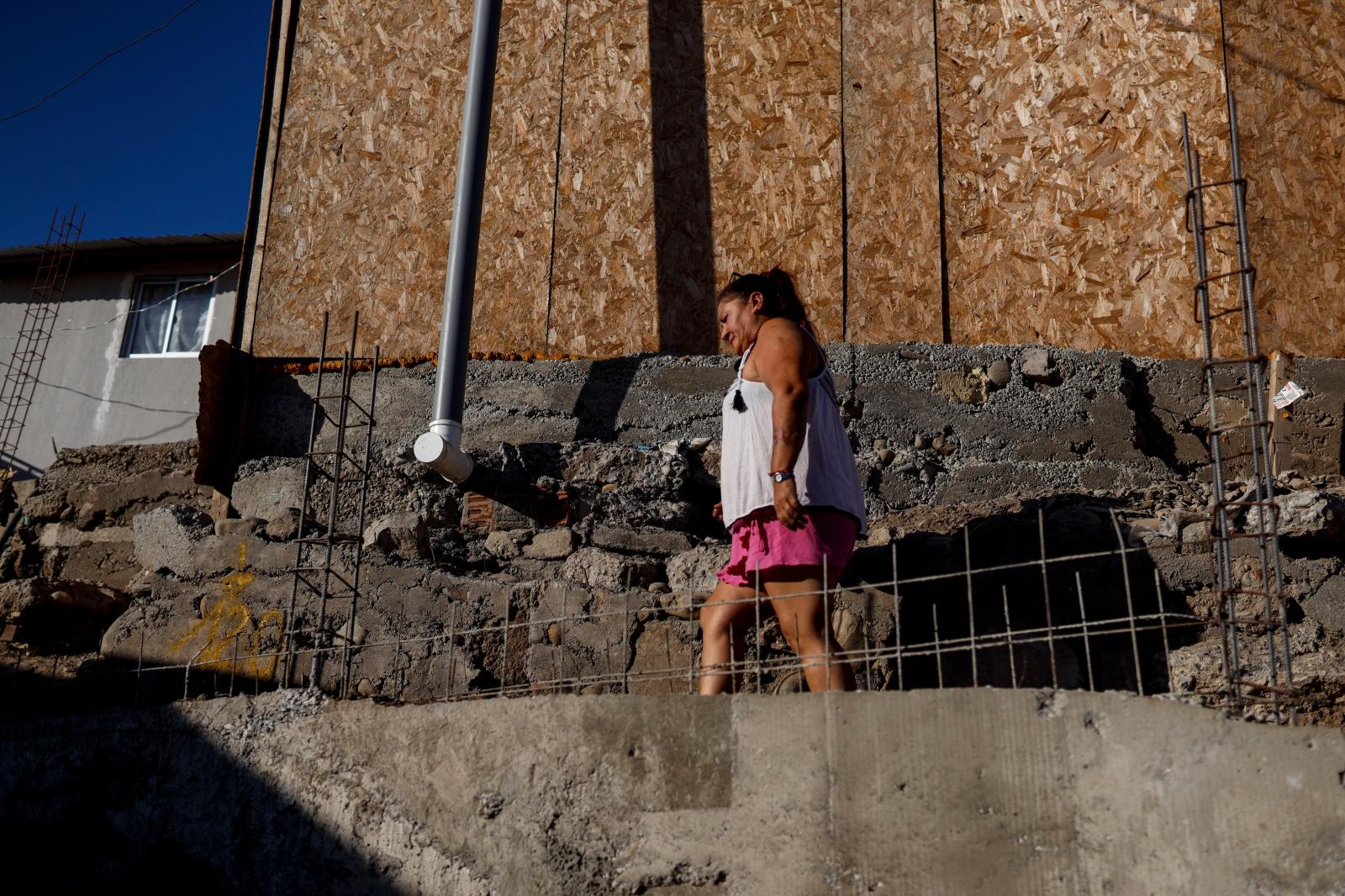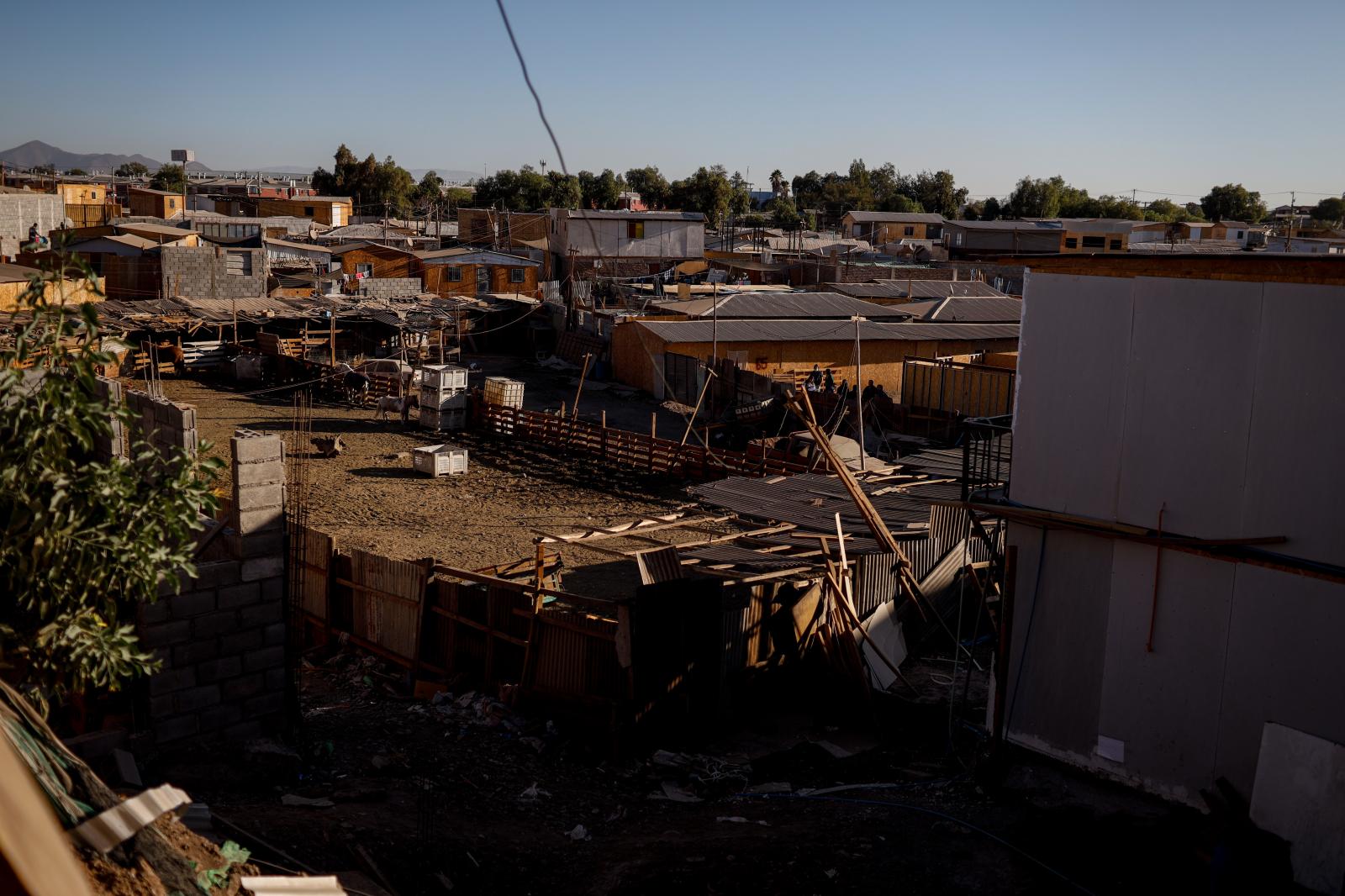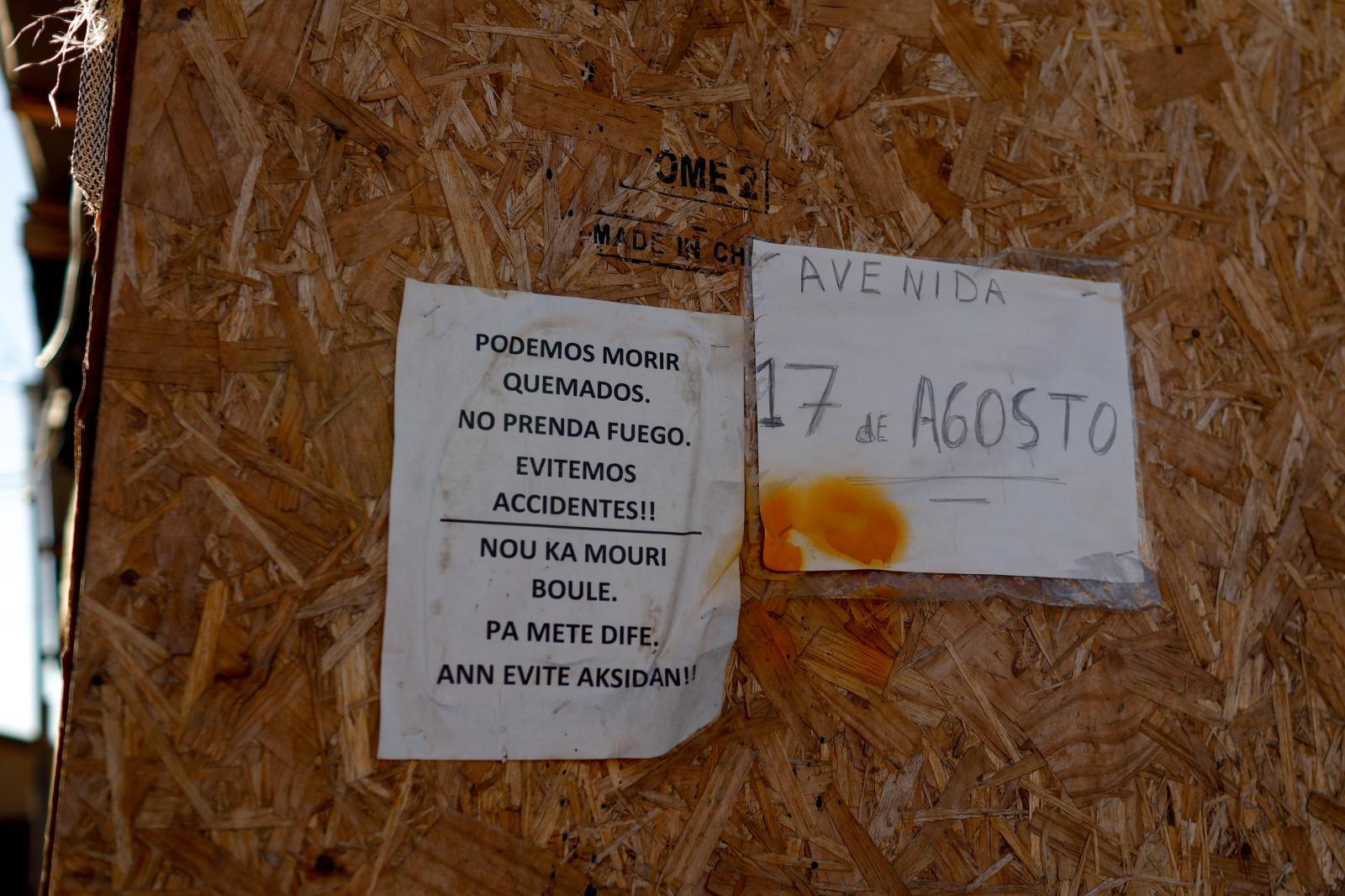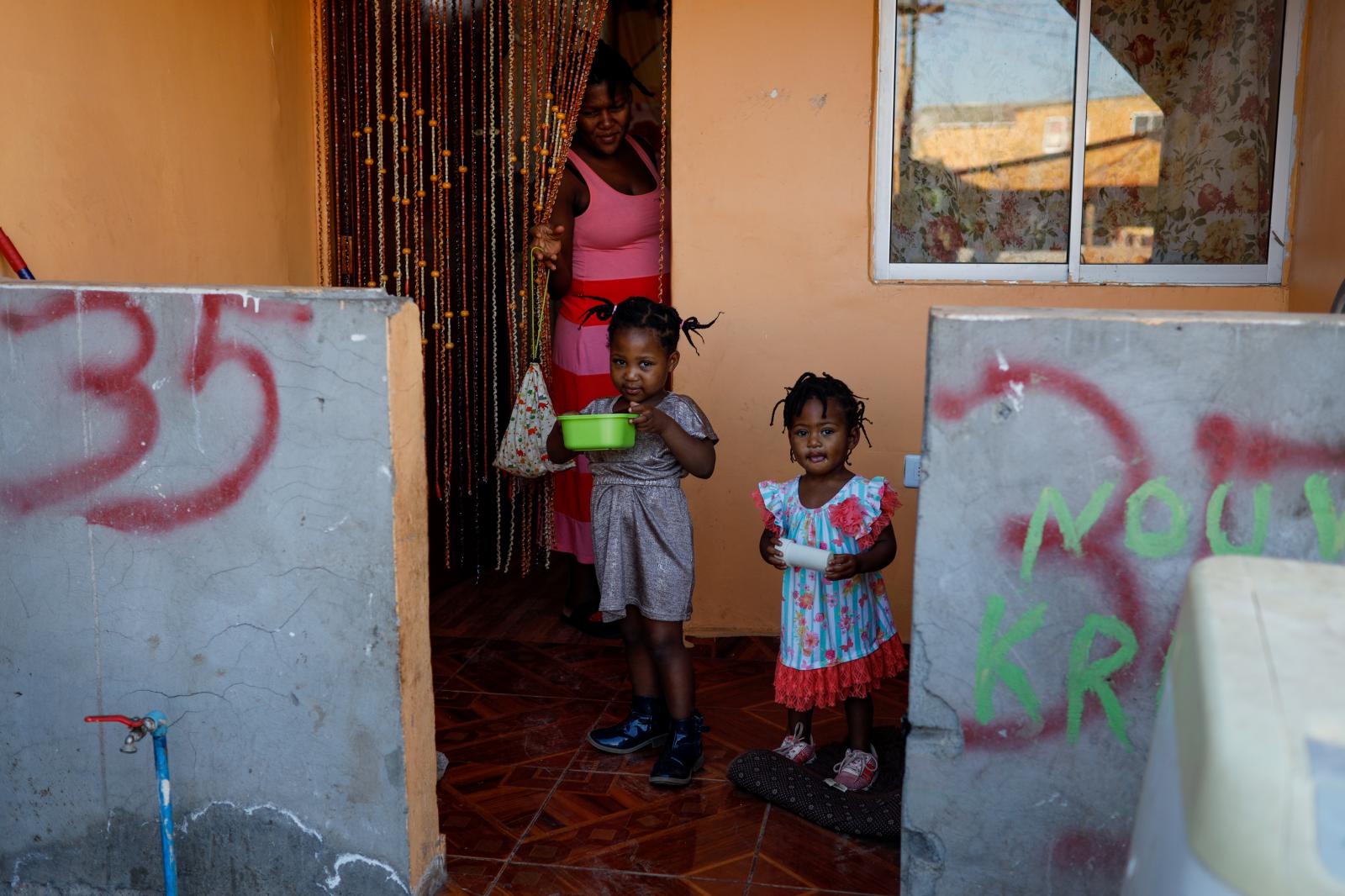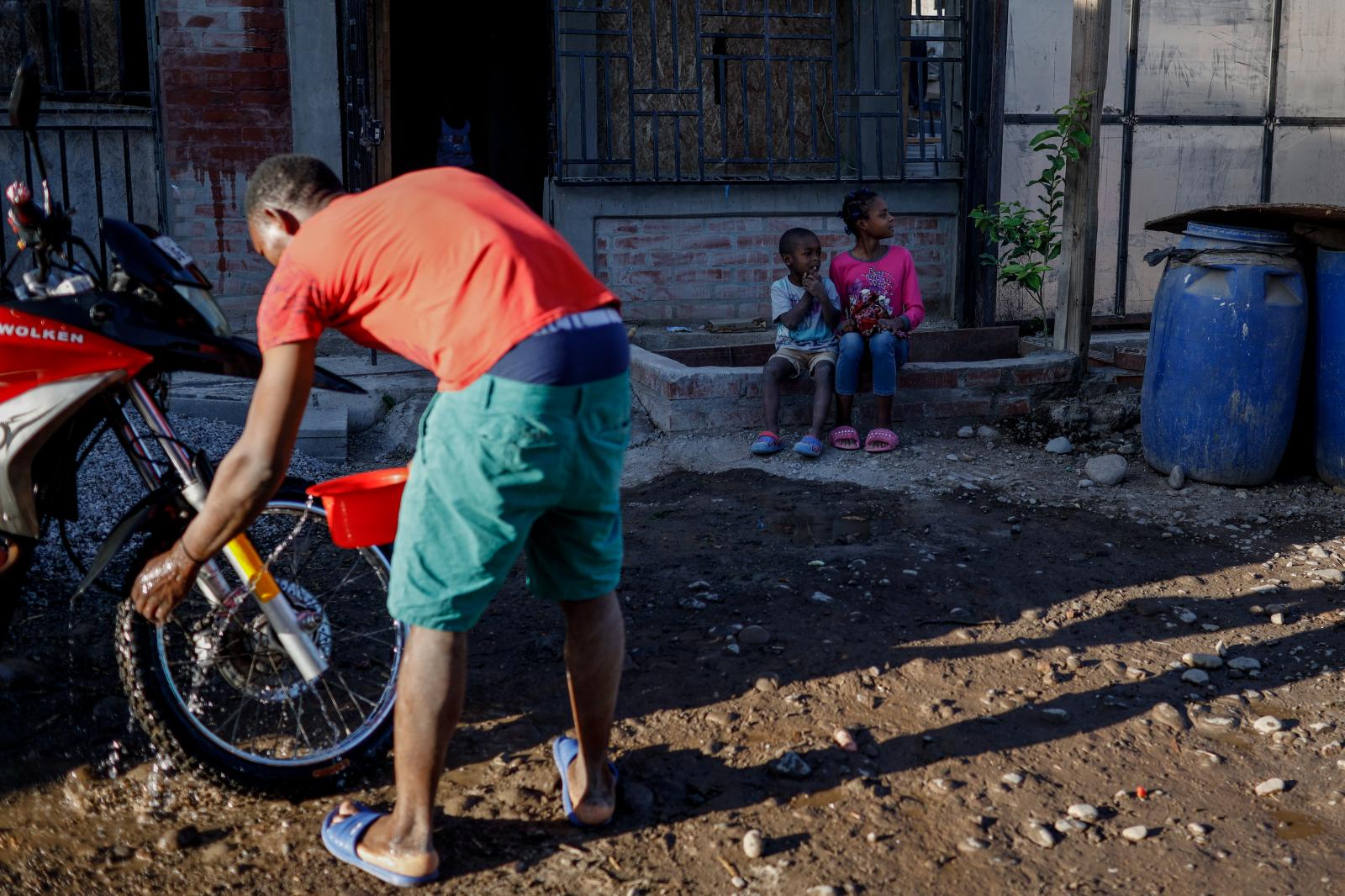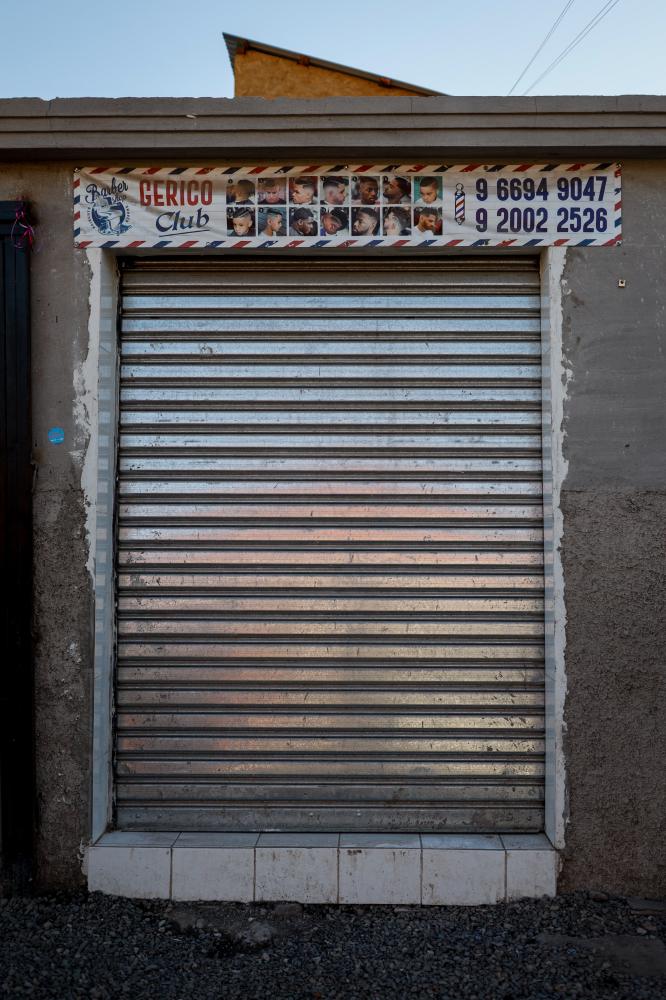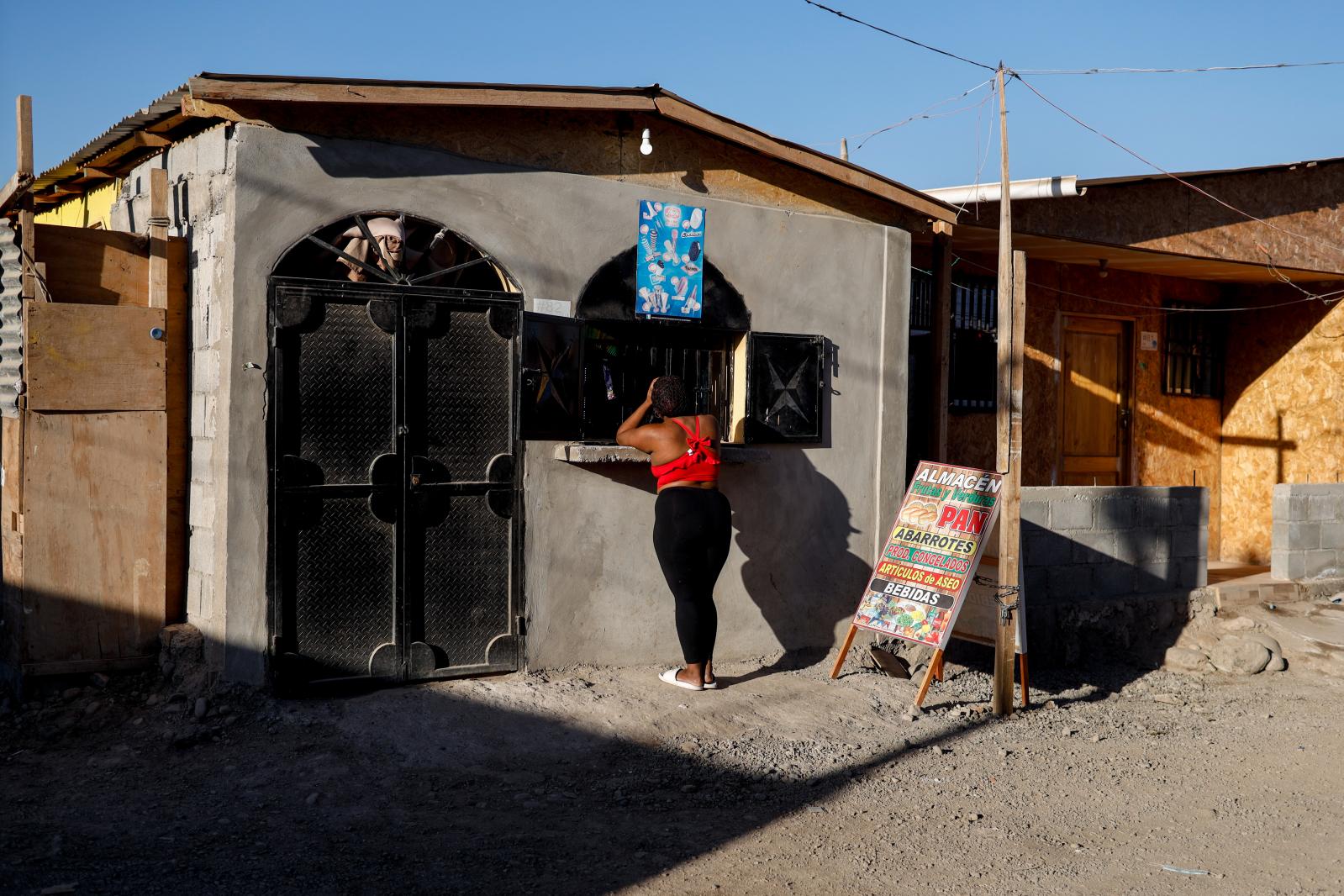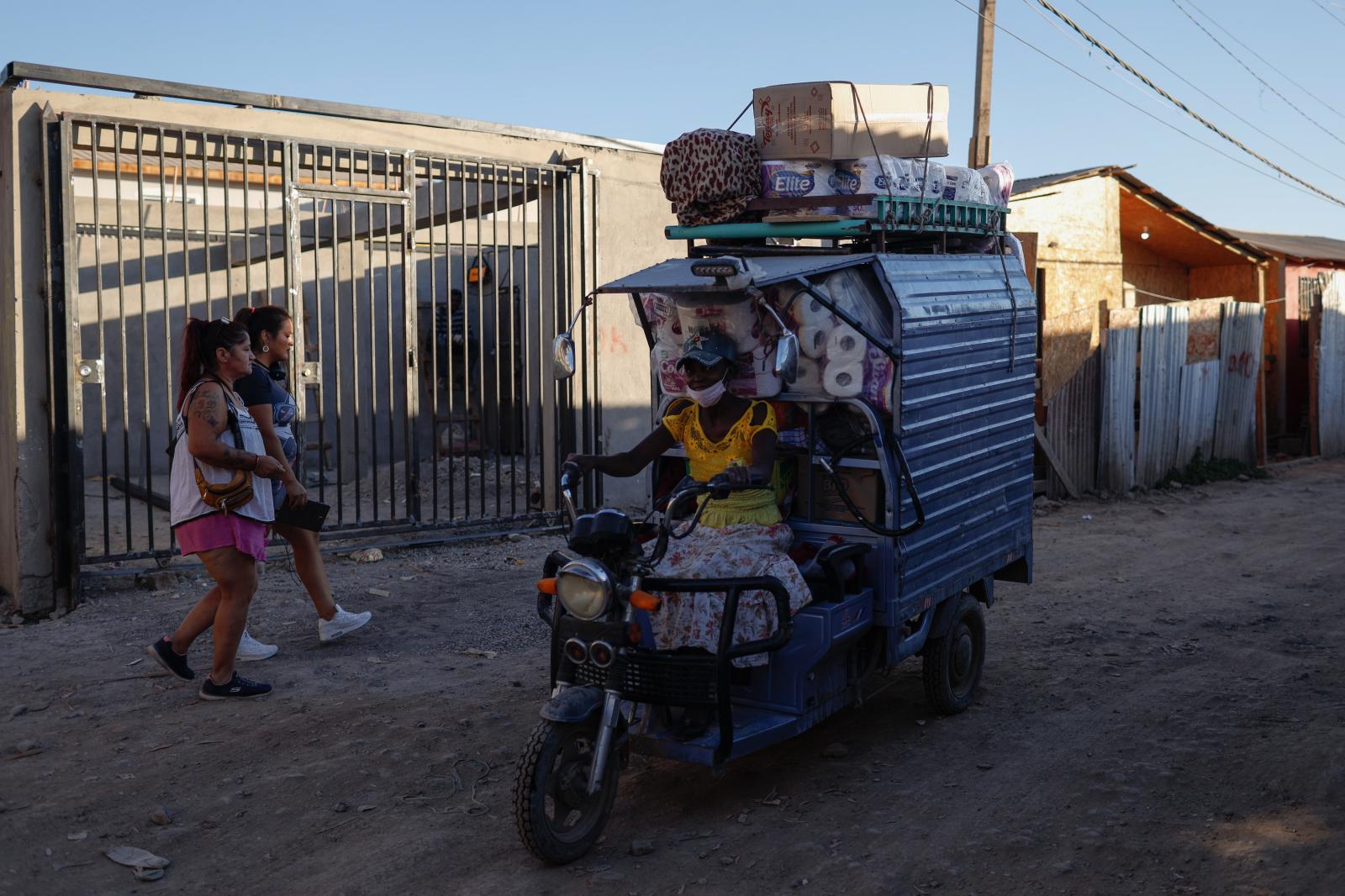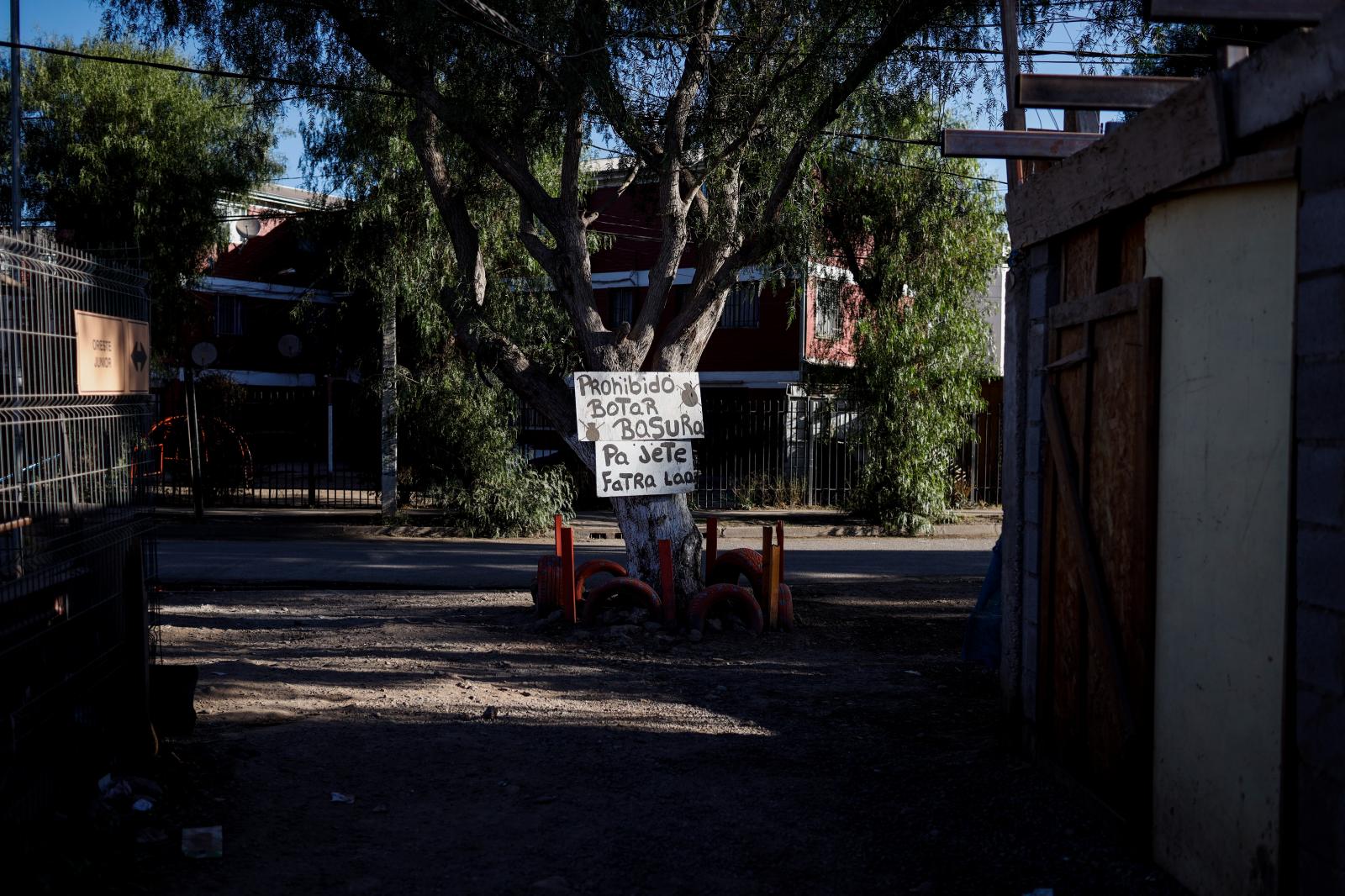Public Project
New Sunrise
Summary
On a July night, in the middle of winter of 2020 in the Cerrillos commune, on the outskirts of the capital, a group of people decided to leave their homes, and took over a vacant lot across the street. Each one took a couple of sticks to demarcate their space, each one made a fire, and they stayed awake all night while they took care of their new space, while they imagined their new home, while they took care of their future house.
New dawn.
On a July night, in the middle of winter of 2020 in the Cerrillos commune, on the outskirts of the capital, a group of people decided to leave their homes, and took over a vacant lot across the street. Each one took a couple of sticks to demarcate their space, each one made a fire, and they stayed awake all night while they took care of their new space, while they imagined their new home, while they took care of their future house.
Ines Fuentes heard the rumor that ran through the streets of her passage that night, she quickly went out and formed a rectangle with 4 sticks, took some sheets, tore them up and laid them on the floor of what would become her new home. She spent the night on a pallet and under a tent she could get.
There were 80 families who arrived the first night, after three days there were already 300 and after a month, there were close to 1,500 families in the place.
Under the traditional Chilean culture, one of the most desired wishes is to have a house of one's own, but this dream is increasingly difficult to achieve.
The Chile that does not have a house, the Chile that rents eternally, the Chile that takes land and turns it into camps, to be able, somehow, to get closer to that dream.
In a country with nearly 19 million inhabitants, more than 2 million people do not have access to decent housing.
In the Nuevo Amanecer land there are already about 10,000 people distributed over in 40 hectares, almost 80% of the inhabitants are migrants, making it the largest irregular settlement in the country.
Assignment for El País.
Un nuevo amanecer.
Una noche de julio, en pleno invierno de 2020, en la comuna de Cerrillos, en las afueras de la capital, un grupo de personas decidió dejar sus casas, y se tomó un terreno baldío al otro lado de la calle. Cada uno tomó un par de palos para demarcar su espacio, cada uno hizo una fogata, y se quedaron despiertos toda la noche mientras cuidaban su nuevo espacio, mientras imaginaban su nuevo hogar, mientras cuidaban su futura casa.
Inés Fuentes escuchó el rumor que corría por las calles de su pasaje esa noche, rápidamente salió y formó un rectángulo con 4 palos, tomó unas sábanas, las rompió y las colocó en el piso de lo que sería su nuevo hogar. Pasó la noche sobre un pallet y bajo una tienda de campaña que pudo conseguir.
La primera noche llegaron 80 familias, a los tres días ya eran 300 y al cabo de un mes, había cerca de 1.500 familias en el lugar.
En la cultura tradicional chilena, uno de los deseos más anhelados es tener casa propia, pero este sueño es cada vez más difícil de alcanzar.
El Chile que no tiene casa, el Chile que arrienda eternamente, el Chile que toma terrenos y los convierte en campamentos, para poder, de alguna manera, acercarse a ese sueño.
En un país con casi 19 millones de habitantes, más de 2 millones de personas no tienen acceso a una vivienda digna.
En los terrenos de Nuevo Amanecer hay ya unas 10.000 personas distribuidas en 40 hectáreas, casi el 80% de los habitantes son migrantes, lo que lo convierte en el mayor asentamiento irregular del país.
Asignación para El País
Una noche de julio, en pleno invierno de 2020, en la comuna de Cerrillos, en las afueras de la capital, un grupo de personas decidió dejar sus casas, y se tomó un terreno baldío al otro lado de la calle. Cada uno tomó un par de palos para demarcar su espacio, cada uno hizo una fogata, y se quedaron despiertos toda la noche mientras cuidaban su nuevo espacio, mientras imaginaban su nuevo hogar, mientras cuidaban su futura casa.
Inés Fuentes escuchó el rumor que corría por las calles de su pasaje esa noche, rápidamente salió y formó un rectángulo con 4 palos, tomó unas sábanas, las rompió y las colocó en el piso de lo que sería su nuevo hogar. Pasó la noche sobre un pallet y bajo una tienda de campaña que pudo conseguir.
La primera noche llegaron 80 familias, a los tres días ya eran 300 y al cabo de un mes, había cerca de 1.500 familias en el lugar.
En la cultura tradicional chilena, uno de los deseos más anhelados es tener casa propia, pero este sueño es cada vez más difícil de alcanzar.
El Chile que no tiene casa, el Chile que arrienda eternamente, el Chile que toma terrenos y los convierte en campamentos, para poder, de alguna manera, acercarse a ese sueño.
En un país con casi 19 millones de habitantes, más de 2 millones de personas no tienen acceso a una vivienda digna.
En los terrenos de Nuevo Amanecer hay ya unas 10.000 personas distribuidas en 40 hectáreas, casi el 80% de los habitantes son migrantes, lo que lo convierte en el mayor asentamiento irregular del país.
Asignación para El País
3,688

